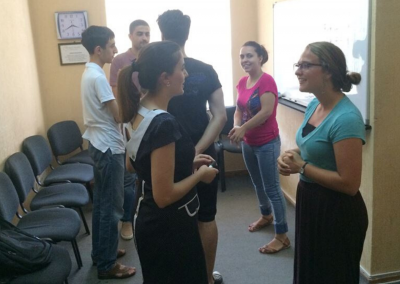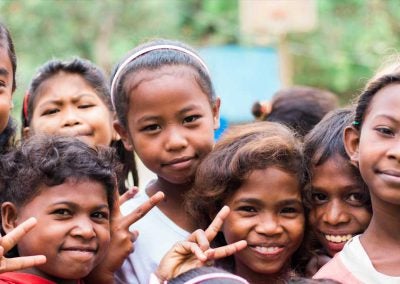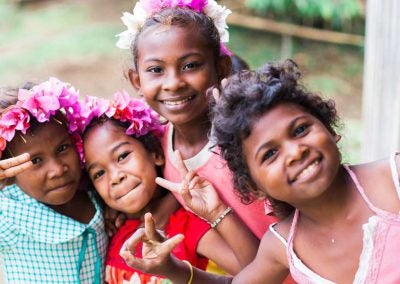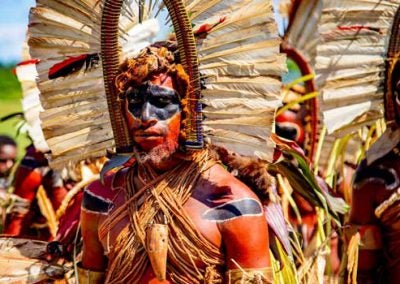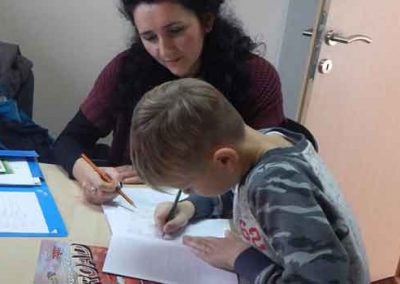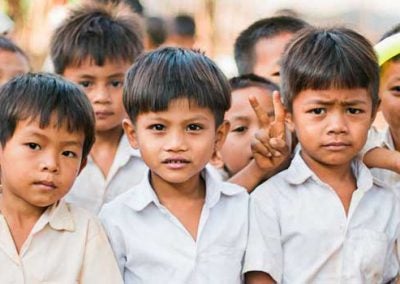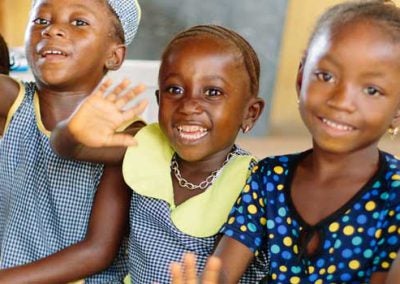Konsae Pilot Project
Approaching community development through local education
Project Information
Resources
Enhancing Education, Increasing Quality of Life
The Mondulkiri Province of Cambodia is home to a vulnerable, indigenous population known as the Bunong people.
In 2016, WHI has conducted an initial assessment and met with various local authorities, community members, school teachers, and relevant stakeholders to get to know one of the villages there and understand the people’s situation. This initial assessment also helped build a relationship providing WHI perspective and understanding of the Bunong indigenous people’s group and their aspiration for the future.
Issues identified included high drop-out and high repetition rates of students in and poor school learning environments. Additionally, the community faced strong gender disparity as well as alcohol abuse and domestic violence. In Cambodia as a whole, four to six percent of boys and girls in Cambodia alike have experienced sex abuse before the age of 18– there is an average 12 percent teenage pregnancy rate, with Mondulkiri Province having the highest, at 34 percent.
The enhancement of quality of primary education and the strengthening of community involvement for improved school performance and standards monitoring is one of the key priorities of the Royal Government of Cambodia in its Education Sector Development Program (ESDP III, the Program). Not only was Mondulkiri identified as one of the priority provinces of the ESDP III, but World Hope believes that part of the solution for successful economic development in this community is through education.
That is why World Hope has implemented the Project “Konsae” pilot; a two school-year project which aims to enhance the quality of primary education and the strengthening of community involvement for improved school performance and, hopefully, a project which will empower the community as a whole.
The project includes a feeding program, a child protection and health education aspect, English as a Second Language learning opportunities, regular community meetings, and capacity building of the School Support Committee, Women’s Group, and the Indigenous Community Committee.
Project Goal
- The primary goal of Project Konsae is for improved access to quality basic education for Bunong ethnic children living along the Wildlife Conservation Area in Mondulkiri, Cambodia.
Expected Outcomes
- Improved learning environment for children in the three Primary School Cluster
- Strengthened capacity and engagement of the Indigenous Community Committee/Women’s Group and School Support Committee in improving school performance
“Parents are playing very constructive role with the School Support Committee in term of participation in decision making and school performance activities. Parents are no longer concern with money they give to their children every day as they know they get food in the school. Parents are also able to save some money and help achieve their objectives for their families. Parents also have improved their understanding about the root causes and consequences of early marriage.”
Celebrating the Impact
%
increased school enrollment in Mondulkiri in 2018
students received daily nutritious breakfasts in 2018
About the Bunong
Eighty percent of the population of the Mondulkiri Province of Cambodia are indigenous peoples, the majority of which are the Bunong. With cultural and livelihood connections to the forest, they remain among the most impoverished in the nation.
Marginalized by decades of war followed by displacement by the Khmer Rouge–during which it is estimated half the population died–their development has been severely strained. One in four men and one in three women have never been to school. Forest and biodiversity losses exacerbate poverty and marginalization.
The Khmer rule also impacted gender roles. Patriarchy regulates women’s behaviors and essentially segregates the sexes. Men having undeterred power leads to increased domestic violence and indigenous women have been especially impacted by land grabbing, which has in turn negatively impacted their livelihoods.




